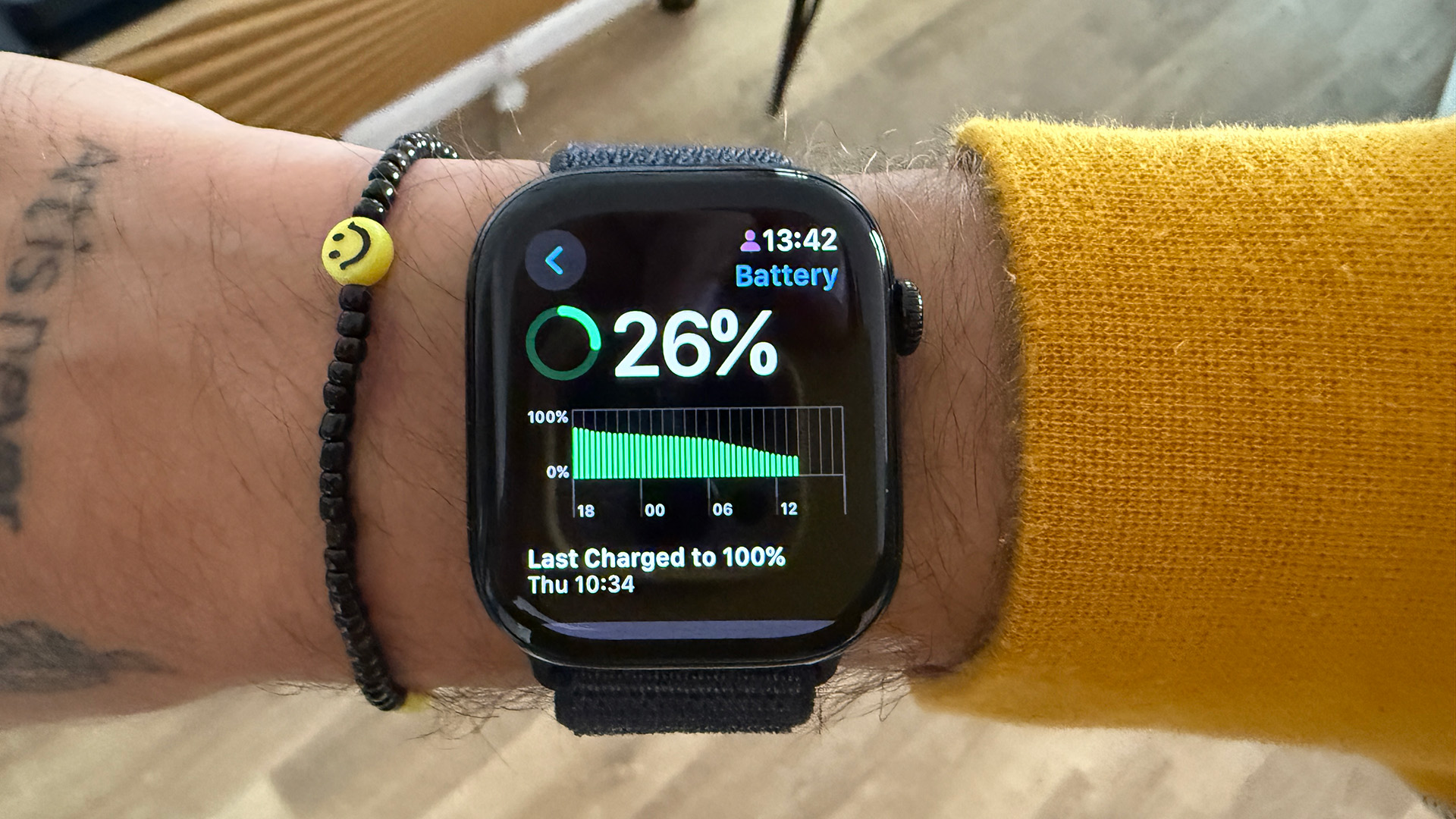Apple Watch Series 11 might not be faster, but that’s exactly the point
Sometimes, standing still in the right way is the smartest move of all


Get all the latest news, reviews, deals and buying guides on gorgeous tech, home and active products from the T3 experts
You are now subscribed
Your newsletter sign-up was successful
I’ve been following the S11 chip leaks with a mix of curiosity and déjà vu. The latest reports confirm that the upcoming Apple Watch Series 11, Ultra 3, and SE 3 will all use the new S11 System-in-Package. Only, it’s not really “new” in the traditional sense.
According to a leak, the S11 reuses the same T8310 architecture found in the S9 and S10 chips, which means it will bring no performance jump or radical redesign. And honestly, that might be the smartest move Apple could make this year.
Rather than chasing higher speeds, the company seems to be doubling down on what matters more in a wearable: efficiency. The S11 may not be faster, but just like how the S10 helped enable a thinner internal layout and longer runtime, it could push the concept even further.
Apple’s approach makes sense. The Apple Watch isn’t struggling to keep up; it’s already smooth and fast for everyday use. What users really want is better battery life (!), more accurate health tracking, and watches that last longer between charges. A more efficient chip enables all of that.
Subtle gains
The new chip could deliver modest but meaningful improvements to battery life, especially during sleep tracking, always-on display use, and sensor-heavy workouts. On the larger Ultra 3, those benefits may be amplified even further, especially if Apple does add features like satellite connectivity or a brighter screen.
And while we’re unlikely to see true multi-day battery on the standard Series 11, every little bit counts, especially if watchOS 11 adds more background features like AI coaching or gesture controls.
Because the chip architecture is a refinement rather than a revolution, I don’t expect any major changes to Apple Watch pricing this year. That means:
Get all the latest news, reviews, deals and buying guides on gorgeous tech, home and active products from the T3 experts
- Series 11 should still start around £399 / $399
- Ultra 3 likely remains at £799 / $799
- SE 3, which may use a downclocked or simplified S11, will probably sit around £219 / $249
If anything, this makes the current-gen models better value once they’re discounted, and you can expect those discounts as soon as the new models are announced in September.
Should you wait for Series 11?
If you’re using an Apple Watch Series 7 or earlier, then yes, you should wait. You’ll benefit from new software, longer battery life, on-device Siri, and likely a more capable and efficient experience overall.
But if you’re already on an Apple Watch Series 9 or Apple Watch Ultra 2, the S11 isn’t reason enough to upgrade on its own – this looks like a year of smart refinement, not a breakthrough moment. Apple seems to be playing the long game here, with S12 in 2026 likely to bring a brand-new chip architecture and meaningful performance gains.
So no, the Apple Watch Series 10 successor isn’t going to be dramatically faster. But it doesn’t need to be. With better efficiency, a few clever hardware tweaks, and the growing power of watchOS 26, Apple’s next smartwatch could still offer a noticeably better experience, especially for those due for an upgrade.

Matt Kollat is a journalist and content creator for T3.com and T3 Magazine, where he works as Active Editor. His areas of expertise include wearables, drones, action cameras, fitness equipment, nutrition and outdoor gear. He joined T3 in 2019.
His work has also appeared on TechRadar and Fit&Well, and he has collaborated with creators such as Garage Gym Reviews. Matt has served as a judge for multiple industry awards, including the ESSNAwards. When he isn’t running, cycling or testing new kit, he’s usually roaming the countryside with a camera or experimenting with new audio and video gear.
You must confirm your public display name before commenting
Please logout and then login again, you will then be prompted to enter your display name.